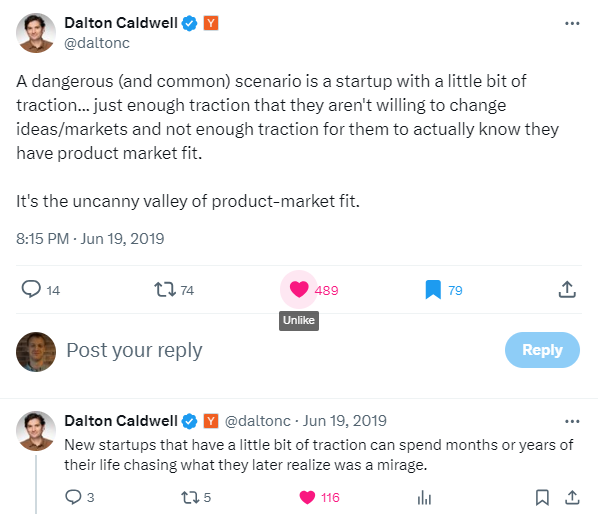- Published on
Founders filter. Do what others are unwilling to do
Let's play math.
Imagine a world where there are 20 founders and only 2 unsolved problems left that could be solved only by tech. One problem is sexy and another one is boring.
The first problem is sexy and easy to start, so it attracts many founders, while the other one is boring, hard to notice and takes a lot of efforts to start.
If 90% pick a sexy problem, while only 10% pick the boring and hard one, that means 18 people choose to compete for a sexy problem while only 2 people choose the boring one.
If 75% of the market cap in a software category typically goes to the category leader, one person will take 75% of the market of a sexy problem, while 17 other founders will have to compete for the remaining 25%. (1)
For the other two with a boring problem, one founder takes 75% of the market, while the other takes 25% (2)
Now, let's get back to the real world, which is much more complex. This complexity makes it very difficult to understand which problems are truly worth solving and even how to recognize them.
So maybe...
If the best way to find problems that others are not willing to solve is by doing things others are unwilling to do, then that means we have to do those things.
If most founders want to work on pure IT problems, maybe we should learn something about physics, electronics, agriculture, biotechnology, healthcare, manufacturing... If most founders want to solve sexy problems, maybe we should solve the boring ones. If most founders want to solve easy problems, maybe we should solve the hard ones. If most founders want to copy each other, maybe we should build something new. If most founders want to build pure software companies, maybe we should consider atoms or combination of bits and atoms.
While I can't tell exactly what is the next big thing to do, I hope we get the idea.
Post scriptum:
(1) Most of these people are in trouble because they have some users and growth, so that makes them unwilling to step back and look for other problems to solve. Many times, this situation leads to zero sum games like raising a lot of money, spending a lot on marketing and PR, dumping prices to zero margins and etc. If someone has existing users, a lot of promises to employees and investors but eventually limited growth, it is very hard to get out of such situation.

(2) If someone picks a boring problem, you will hardly hear about them on internet. If someone picks a hard problem, they often don't need to do things other than solving that problem. (e.g marketing, ads)